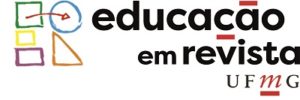Prof. Dr. Suzana dos Santos Gomes, Associate Professor at the Faculty of Education of the Federal University of Minas Gerais (FaE/UFMG) and Editor-in-Chief of Educação em Revista, Belo Horizonte, MG, Brazil.
We are opening the Special Week of Educação em Revista on SciELO with the theme Open Peer Review, one of the principles of Open Science. We can say that Open Science has principles similar to those advocated by the Humanities and other areas of knowledge. It encourages collaborative work, makes evaluation processes more transparent and facilitates data sharing. These procedures can contribute to the continuous improvement of scientific output.
We believe that our journal was right to adopt Open Science, as it strengthens and encourages us to maintain theoretical and methodological rigor, ethical principles, and quality to our publications. This choice also reaffirms our commitment to the DEIA principles (Diversity, Equity, Inclusion, and Accessibility) in scientific research.
DEIA Principles
In recent decades, the DEIA principles have become known and publicized as fundamental values in promoting a fairer, more equitable and inclusive society for all. These guidelines have been frequently addressed by various fields of knowledge in Brazil and around the world. This is no different in scholarly communication. One of the goals of science is to build new knowledge that is accessible to everyone.
The journal Educação em Revista has strived to follow best practice principles and transparency in scientific publishing, as well as to comply with the recommendations of the Committee of Publication Ethics (COPE) for the promotion and encouragement of DEIA throughout its editorial flow, with the aim of tackling inequalities in defense of democracy and inclusion.
DEIA principles and practices have been increasingly incorporated into professional and academic spheres, with the aim of combating the multiple dimensions of inequalities in society that refer to social injustices, to contribute to a more inclusive and equitable education in the publishing field.

Image: Freepik.
Open Peer Review
Open Science is based on three strategic axes: Open Access, Open Data and Open Peer Review. The proposal for Open Peer Review, one of the principles of this agenda, has produced different reactions and attitudes among editors, authors, and reviewers.
Open Science is pushing for transparency in the evaluation, editing and curation processes of research communication objects, which play an essential role in promoting credibility and transparency.
Open Peer Review is an umbrella term for various review model options, including disclosing the identities of authors and reviewers, interaction between editors, reviewers and authors, and the publication of review reports. These models have been emerging since the late 1990s with many variants and approaches.
The adoption of the Open Peer Review procedure encompasses a series of evaluation practices or models that aim to increase the transparency, efficiency, and accountability of the review process. The openness of peer review can also promote interactions between reviewers, editors, and authors.
Under the horizon of Open Science, several journals have been experimenting with different evaluation models. Their objectives, among others, involve obtaining better quality reviews and more constructive criticism; encouraging the participation of the scientific community in the evaluation; recognizing the work of the reviewers and giving the reviews due visibility, which are also part of the scientific record of a study.
The evaluation process we are implementing at Educação em Revista involves reading and evaluating the article beforehand and interaction between reviewers, authors, and editors, which culminates in the publication of the revised article and the review reports. The approach is formative and has been an opportunity to exchange and deepen knowledge, resulting in an improvement in the quality of the scientific manuscript.
Take part in the SciELO in Perspective Blog Special Week and check out our publications and videos. For us, editors of Educação em Revista, it will be a pleasure to share some of our experience with you.
Educação em Revista Special Week
- Contributions of Educação em Revista for the advance of Open Science in Brazil
- Educação em Revista celebrates 39 years of publishing academic research: interview with the Editor
- Collective constructions: open peer review of an article on indigenous literature
- Pedagogical practices for student retention
- How do young people experience the democratization of access to higher education?
- Web platform can revolutionize the essay correction process
- The Open University of Brazil in the management of student permanence in Pedagogy courses
- Educação em Revista: editorial challenges and scientific possibilities
External Links
Educação em Revista – EDUR: www.scielo.br/edur/
Educação em Revista – Site | Instagram | Twitter | LinkedIn
Translated from the original in Portuguese by Lilian Nassi-Calò.
Como citar este post [ISO 690/2010]:



















Recent Comments